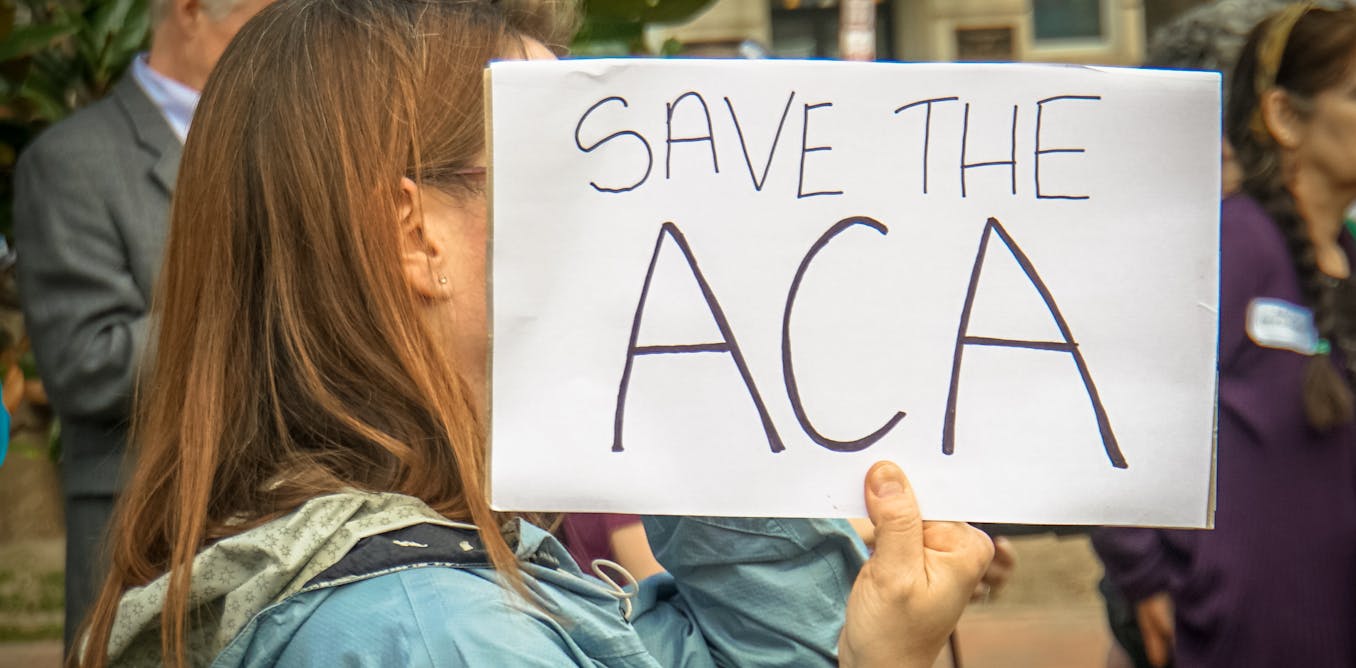How Business Leaders Can Renew Democracy | Daniella Ballou-Aares | TED
In the TED talk “How Business Leaders Can Renew Democracy,” Daniella Ballou-Aares shares a powerful message about the responsibility of business leaders in protecting and renewing democracy. Drawing on personal experiences and global events, Ballou-Aares highlights the importance of business leaders stepping up to address the challenges facing democracy today.
Using anecdotes from her friend in Turkey and her own experience living near the Capitol during the January 6 attack, Ballou-Aares emphasizes the fragility of democracy and the need for business leaders to take action. She challenges the notion that business leaders should stay out of politics, arguing that history has shown that when they do, democracies are at risk of collapsing.
Ballou-Aares introduces the Leadership Now Project, an organization she co-founded, which brings together business leaders from different backgrounds to work towards preserving democracy. The organization focuses on high-impact strategies at both the state and federal level, making the economic case for why an unstable democracy harms business and the economy.
By sharing examples of successful initiatives and urging business leaders to take action together, Ballou-Aares inspires hope that democracy can be saved. She calls on business leaders to stand up for democratic values, protect elections, and push back against threats to democracy. With small actions and collective efforts, Ballou-Aares believes that business leaders can play a crucial role in renewing democracy for future generations.
Watch the video by TED
So a few years ago, I was catching up with a friend from business school, a Turkish executive who, on the surface, seemed to be thriving. She had a great career, a beautiful family, and she was just one of those people who seemed to have it all together. But in reality, she was struggling.
The Turkish government had started going after business leaders whose views it disagreed with. Some of their companies had been shut down. Others were in jail. And she was scared. And she felt guilty because she and everyone she knew had stayed out of politics. They had focused on building their companies
And raising their children, and now they were paying the price. As she left, she said to me with urgency, “In Turkey, we’re in season 10 in this series we call ‘The Demise of Democracy.’ In the US, you’re in season three.” On January 6, 2021, I could hear the sirens from my home.
Living six blocks from the Capitol in a neighborhood more typically occupied by strollers, not angry insurrectionists, I asked my children to stay inside and play in the basement where they could not hear the violence. And I watched in fear as our institutions and our leaders came under attack.
The next season in the decline of American democracy had begun. OK, so this is not the problem I thought needed solving when I got an engineering degree and an MBA in the ’90s. The Berlin Wall had fallen, and every leading political scientist assured us that communism and authoritarianism were in permanent decline.
Democracy was the clear winner in a long Cold War battle, and economic growth and development was the new imperative. So pursuing a government job in boring, inefficient-seeming path seemed illogical. And so we went off to get our MBAs and change the world through business. In Johannesburg or …
Beijing or Moscow or New York or Silicon Valley. Our big challenge was innovating enough to create opportunities in new markets. Standing here today, this is not the future I imagined in the ’90s. Communism might be a distant memory, but authoritarianism is on the rise. And for those who build careers in business,
Assuming that rule of law and democratic capitalism would remain intact, we now have the obligation, the opportunity, the power to take action. And, my generation, Gen Xers, have a particular obligation because we now lead the majority of companies in the US. And I don’t just mean the C-suite,
I mean the investors, the entrepreneurs, the executives who saw success as our public institutions faltered. OK, so some of you might be getting a little skeptical, thinking, “Is she suggesting we need more corporate influence in politics?” OK, look, I am not suggesting we need more checks written to advance specific, narrow corporate interests.
What I’m talking here today is about a different challenge, and I’d suggest an even bigger one. That the pro-democracy business leaders will stay out of politics because it’s the safe thing to do, it’s the respectable thing to do, and what history tells us that when business leaders stay out of politics,
From Nazi Germany to modern-day Turkey and Hungary, and they passively enable autocrats, democracies collapse. But when business leaders engage, we have a better chance of democracy surviving. As occurred in South Africa, when a group of business leaders played a pivotal role in ending apartheid without a civil war.
OK, so what does the solution really look like? I’m not suggesting we need more corporate virtue signaling and CEO statements on every issue of the day. And the Silicon Valley dream of techno-optimism, I fear, also can’t help us. I don’t think tech bros inheriting the Earth will answer our problems for us.
What we need now are courageous leaders who understand that it is squarely in their self-interest to protect our elections and reform our institutions, to ensure that disinformation doesn’t dominate politics and to really play their role in protecting our system. So for 20 years, saving American democracy was not part of my professional ambitions.
I was advising companies at Bain, I was part of building a management consulting company across five continents. And even when I went into government, it was to focus on boosting private investment in newly-emerging economies. But when I got to Washington and joined the Obama administration, here’s what got me scared:
Was that our public institutions that projected so much power seemed underneath to be fragile and disruptable. And by 2017, it was clear that that disruption was well under way. And it was time to pivot to a new mission: to focus on bringing business leaders into the project to renew American democracy.
I consulted with some of the most thoughtful academics studying the US political system, and pulled together a group of my Harvard Business School classmates to design a different kind of political organization. We started to bring together business leaders from different industries, geographies and political persuasions. We call it the Leadership Now Project.
Since 2018, we’ve been deploying our time, dollars and networks to preserving democracy. And we’ve seen that we can make progress. We now have members in more than 20 states and some real successes under our belt. And our members are individual business leaders who come to this work
Not as Democrats or Republicans, but as Americans. We focus our efforts on the highest ROI strategies at a state and federal level. We really work to make the economic case that an unstable democracy harms business and our economy. And increasingly, we’re clear at what’s really at stake:
That when democracy falters, the rule of law goes out the window, innovation is crushed along with dissent, leaders reward friends and punish enemies, and wars become far more likely. We’ve built Leadership Now applying modern business thinking to an old-school political model: the dues-paying membership organization,
Which some of the most powerful players in politics have employed for decades, like the Chamber of Commerce, the NAACP, the NRA, unions, the Sierra Club. They’ve all used this model because it helps us and them to play the long game. We’re not just seeking silver bullets,
And we don’t give up when we fail, but we can replicate and scale successes across different states when we win. And our members are taking real action together. Let me share a few examples of how. Where we’ve sought to uphold trust in elections. Where we’ve sought to protect the people and policies
That are working to shore up our democracy. And how we’ve pushed back on political retribution, which we see continuing to increase. So in October 2020, we issued the first public statement by a business organization seeking to reinforce the legitimacy of the presidential election process. More than 200 leaders from across industries joined us,
And later major business associations and corporations also joined in calling for the certification of the election and condemnation of the January 6 attack on the Capitol. We’ve worked to support some of the leaders who are willing to push back on threats to democracy. So in 2022, a group of Wisconsin business leaders,
A bipartisan group, asked their candidates for governor if they would be willing to certify elections regardless of the result. A basic, nonpartisan question. When one of the candidates refused to agree, they endorsed his competitor, who went on to win a closely-fought election. Later that year, we worked with our member, Paul Tagliabue,
The former commissioner of the NFL, to pull together his long-standing networks in business, sports and the military to support legislation to protect future presidential election transitions. Later that year, Congress did just that, passing legislation to reform the Electoral Count Act on a bipartisan basis. We stand with companies
That are threatened with political retribution. The governor of Florida, Ron DeSantis, had threatened Disney with political retribution and actually had exacted political retribution for the companies disagreeing with him and his legislature. We argued that this was something that was more typical in autocracies, not democracies like the US, and set a dangerous precedent.
Our amicus brief on the case was filed and we continue to support Disney’s position as the case moves forward. We take a clear position against laws that damage democracy. In August 2023, Jeni Britton, the founder of Jeni’s Splendid Ice Cream, joined more than 50 business leaders in her state of Ohio,
Making the case that a cynical measure that sought to limit citizens ability to weigh in on ballot initiatives was bad for democracy. The ballot initiative ultimately was defeated 57 to 43 percent, with both Democrats and Republicans voting against it. Look, this is just a start.
There are many more successes that we can have together. And here’s the good news, you don’t have to act alone. Our polling of business leaders shows that the majority care about democracy, they would like to protect democracy in the US. So here’s a few things you can do together with like-minded business leaders.
Remember that small actions have power. If election administrators are threatened in a city, even if just 10 executives come together and take a stand, they will be seen as courageous leaders and the unexpected voices that are standing up for our system. Now imagine if in every city and industry,
A dozen executives came together and made a plan for how they will respond when democracy is threatened. Look, we’re at a tenuous moment, and I am certain that we can win this fight. But we have watched too many seasons of democracy’s decline in the US and around the world.
And we need to work now, in urgency, together to save our democracy. And I’m more convinced than ever that business leaders have a role to play in that. Thank you.
About TED
The TED Talks channel features the best talks and performances from the TED Conference, where the world’s leading thinkers and doers give the talk of their lives in 18 minutes (or less). Look for talks on Technology, Entertainment and Design — plus science, business, global issues, the arts and more. You’re welcome to link to or embed these videos, forward them to others and share these ideas with people you know.
Video “How Business Leaders Can Renew Democracy | Daniella Ballou-Aares | TED” was uploaded on 03/25/2024 to Youtube Channel TED



































